10 Common Regrets After Pet Euthanasia (Part 2)
This is the second part of our series on common regrets after pet euthanasia.
After euthanasia, many pet owners experience a wide range of emotions and regrets, which can vary based on the circumstances and their unique bond with their pet. These feelings can be overwhelming and may linger for months or even years.
Some of the most frequent regrets after saying goodbye to a dog or cat include the ones below.
6. “I Should Have Done It Differently”
Many pet parents later realize that, in the final weeks or months of their pet’s life, their companion’s quality of life had significantly declined — a perspective that may have been lost in the flurry of tests and treatments.
Some regret not being more emotionally or practically prepared for the euthanasia process: not fully understanding what would happen during the procedure or how they might feel afterward. This afterthought is especially common when euthanasia follows a traumatic event or acute illness that leads to an unexpected visit to an emergency center.
To help with this, we’ve developed FAQs on pet euthanasia and aftercare so pet owners can feel more prepared and supported before coming to the clinic on the day of euthanasia.
Many pet owners are also stunned by how quickly their beloved companion dies. Even though the process is gentle and peaceful, they often expect a more “demonstrative” farewell, like in movies. They’re surprised that their pet slips away so swiftly, often without making a final sound.
7. “I Heard My Pet Suffering During the Euthanasia”
Some people worry that their pet experienced pain or fear during euthanasia, leading to intense guilt and regret. It’s important to understand that euthanasia — literally “good death” in Greek — is designed to be as peaceful and painless as possible.
Veterinary team members, who are some of the most passionate advocates for animals, simply couldn’t do this work if every euthanasia caused pain or discomfort.
In most cases, pets are first sedated with a calming agent and then given a large dose of anesthetic, allowing them to pass away gently in their sleep, free from pain and distress.
“What Was That Noise?”
In rare cases, some dogs may show irregular or noisy breathing in their final moments, known as agonal breathing. This type of breathing can sound like gasping or deep, reflexive breaths.
While it can be distressing to witness, agonal breathing is a natural reflex of the body shutting down. It does not indicate pain or suffering. The brain is no longer fully aware, and your pet is not conscious of these movements.
8. “I Wish I Had Done Something to Memorialize My Companion”
Another common regret after pet euthanasia is wishing you had created keepsakes — a paw print, a lock of fur, or even held a small ceremony to honor your companion. These gestures can bring comfort, especially since many crematoriums offer a variety of meaningful pet memorial items.
The day of the euthanasia isn’t always the right moment to explore these options, and that’s okay. Your veterinary team can connect you with the aftercare service — professionals who understand pet loss and know how to guide you. Don’t hesitate to be upfront about your budget; they’ll gladly suggest thoughtful, affordable alternatives.
Depending on your values and means, you can honour your companion’s memory in many ways. For example, you might:
Create a scrapbook of your favorite photos and stories
Plant a tree in their memory
Have a piece of jewelry made with their ashes
Commission a painting from a photo
We’ve gathered ideas to memorialize your pet, and platforms like Etsy are a treasure trove of artistic keepsakes.
9. “I Felt Rushed”
Some pet owners later wish they hadn’t felt so rushed when making the decision. Sometimes a partner, a family member, or even an outside circumstance — like icy sidewalks making that one last walk too hard — adds pressure. In the moment, everything can feel overwhelming.
It’s also common not to fully absorb what the veterinary team explained. Many people are surprised by how quickly their pet passes once the injection is given. It’s a lot to process, emotionally and mentally, often in very little time.
Ask for a Pre-Euthanasia Consultation
You can request a pre-euthanasia consultation at your veterinary clinic to help guide your decision and prepare you in advance. This appointment allows you to ask questions, talk through your worries, and understand the steps of the euthanasia process before the day itself.
Being informed ahead of time can make it easier to be fully present when it’s time to say goodbye.
10. “I Didn’t Tell the Truth to My Kids”
Regrets can also stem from not adequately explaining the situation to children or other family members, which can create misunderstandings or additional grief. It’s understandable to want to protect children from pain, but gently telling the truth is usually kinder than leaving them confused.
Rather than shielding kids from the reality of pet loss, it helps to adapt the explanation to their age and level of understanding. Honest, age-appropriate conversations can support their own grieving process.
To help families navigate this difficult time, we’ve compiled various resources about pet loss on our website. You can start with our Book List for Kids and Adults to find stories and guides that open the door to meaningful conversations.
Moving Forward With Less Regret
Losing a beloved pet leaves a space in your heart and soul that never truly heals — a quiet emptiness where unconditional love once lived. The pain may come and go, and soften with time, but it never disappears completely. It reflects the deep bond you shared.
If you carry regrets after pet euthanasia, know that you are not alone. You made the best decisions you could with the love, care, and information you had at the time.
Grief is the echo of love — and it means your pet was deeply, truly cherished.

